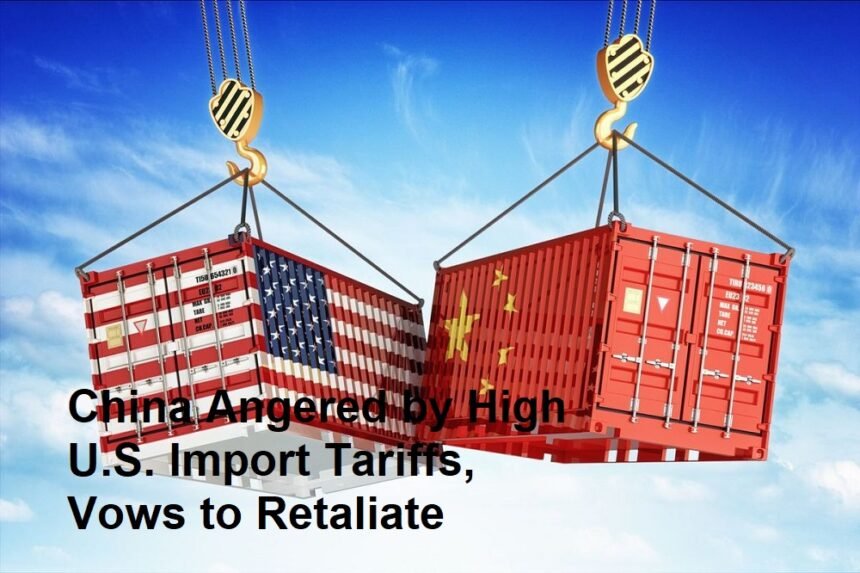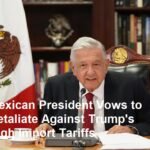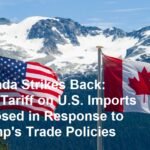Tensions between the United States and China have escalated once again, as Beijing expressed outrage over the imposition of high import tariffs by the U.S. government. The Chinese government has confirmed that it will take retaliatory measures in response to what it describes as “unfair and unilateral” trade policies. This latest development threatens to reignite the trade war that had previously strained relations between the world’s two largest economies.
The U.S. tariffs, which target a wide range of Chinese goods, including electronics, machinery, and textiles, were announced as part of the Biden administration’s efforts to protect American industries and address trade imbalances. However, China has condemned the move as a violation of international trade norms and an attempt to suppress its economic growth. In a strongly worded statement, the Chinese Ministry of Commerce accused the U.S. of “bullying” and “economic coercion,” vowing to defend its national interests.
“We firmly oppose the U.S. government’s decision to impose high tariffs on Chinese products. This is not only detrimental to China’s economy but also harms global trade stability,” said Wang Shouwen, China’s Vice Minister of Commerce. “China will not sit idly by and will take all necessary measures to safeguard its legitimate rights and interests.”
While specific details of China’s retaliatory actions have not yet been disclosed, experts predict that Beijing may impose tariffs on key U.S. exports such as agricultural products, automobiles, and aircraft. Additionally, China could restrict access to its market for American companies or impose regulatory hurdles that would disadvantage U.S. businesses operating in the country. Some analysts have also suggested that China might leverage its dominance in rare earth metals, which are critical for the production of electronics and renewable energy technologies, as a strategic countermeasure.
The prospect of a renewed trade war has sent shockwaves through global markets, with investors fearing the potential economic fallout. The previous U.S.-China trade war, which began under the Trump administration, resulted in billions of dollars in losses for businesses on both sides and disrupted global supply chains. A new round of tariffs could further exacerbate these challenges, particularly at a time when the global economy is still recovering from the impacts of the COVID-19 pandemic.
In the United States, the tariffs have drawn mixed reactions. While some industry groups and lawmakers have praised the move as a necessary step to protect American jobs and industries, others have warned of the potential consequences. “Tariffs are essentially taxes on American consumers and businesses. They may provide short-term protection for certain industries, but in the long run, they hurt the economy by increasing costs and reducing competitiveness,” said David French, a spokesperson for the National Retail Federation.
The Biden administration has defended its decision, arguing that the tariffs are aimed at addressing unfair trade practices, including intellectual property theft and forced technology transfers, which have long been points of contention between the two nations. “Our goal is to create a level playing field for American workers and businesses. We are open to dialogue with China, but we will not hesitate to take action when our interests are threatened,” said U.S. Trade Representative Katherine Tai.
As the situation unfolds, the international community is closely watching to see how both nations will navigate this latest escalation. Diplomatic efforts to de-escalate tensions are underway, but the path to resolution remains uncertain. For now, the specter of a full-blown trade war looms large, with potentially far-reaching implications for global trade, economic stability, and international relations.
In the meantime, businesses and consumers around the world are bracing for the impact of higher tariffs and the uncertainty they bring. The coming weeks will be critical in determining whether the U.S. and China can find common ground or whether the world is headed for another prolonged period of economic confrontation.













